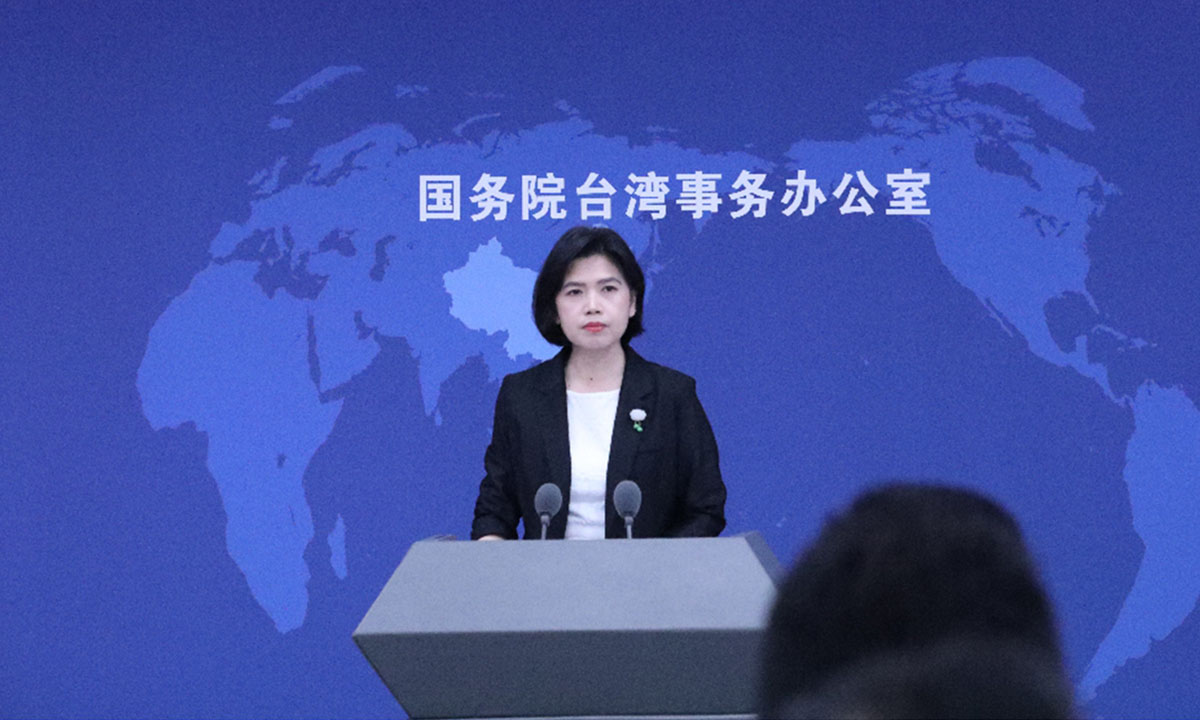
Zhu Fenglian Photo: Taiwan Affairs Office of the State Council
If the Democratic Progress Party (DPP) authorities persist in its unabated selling out of Taiwan, the competitive edge of Taiwan's related industries will inevitably be eroded, Zhu Fenglian, a spokesperson for the Taiwan Affairs Office of the State Council, said on Wednesday.
Zhu made the remarks during a regular press conference in response to inquiries regarding reports that the US has requested Taiwan Semiconductor Manufacturing Company (TSMC) to relocate its advanced processes to the US.
Zhu noted that TSMC has become the DPP's pledge of allegiance to curry favor with the US. As some public opinion on the island said, the DPP authorities are bent on seeking Taiwan independence by relying on the US and it is only a matter of time before TSMC turns into an American Semiconductor Manufacturing Company, she said.
Zhu warned that if the DPP authorities continue to sell out of Taiwan without any bottom line, the competitive edge of Taiwan's related industries will undoubtedly be diminished, resulting in damaged interests for the island's enterprises and residents.
TSMC's 2-nanometer chips will definitely be produced in the US, but the most advanced and critical technologies will remain in Taiwan, cna.com reported on November 7, citing Jyh-Huei Kuo, an official in charge of the island's economic affairs.
Regarding the reports, Zhu cautioned that when Taiwan's value as a pawn is fully exploited, it will be abandoned, and businesses and the public on the island are becoming increasingly aware of this.
It should be noted that numerous enterprises from Taiwan have achieved rapid growth through participating in cross-Straits cooperation, providing further evidence that joint efforts to strengthen the economic growth of the Chinese nation are the correct path, Zhu added.
This planned move will clearly be detrimental to Taiwan, as it will impact the local chip industry and the entire supply chain, Xin Qiang, director of the Taiwan Studies Center at Fudan University in Shanghai, told the Global Times on Wednesday, saying the high costs and inefficiencies of setting up factories in the US will likely prove to be against the market rules.
The production costs at TSMC's wafer fab in the US could be 30 percent higher than in Taiwan and may reduce the profitability of the 4-nanometer process by around 1 to 2 percent, according to a stock report by financial services provider Macquarie Group, Taiwan media United Daily News reported.
In the long run, politicizing economic issues will not achieve the US goal of strengthening its own chip industry through TSMC's production in the US. Instead, it may accelerate the mainland's efforts to achieve self-reliance in the semiconductor sector, Xin added.






